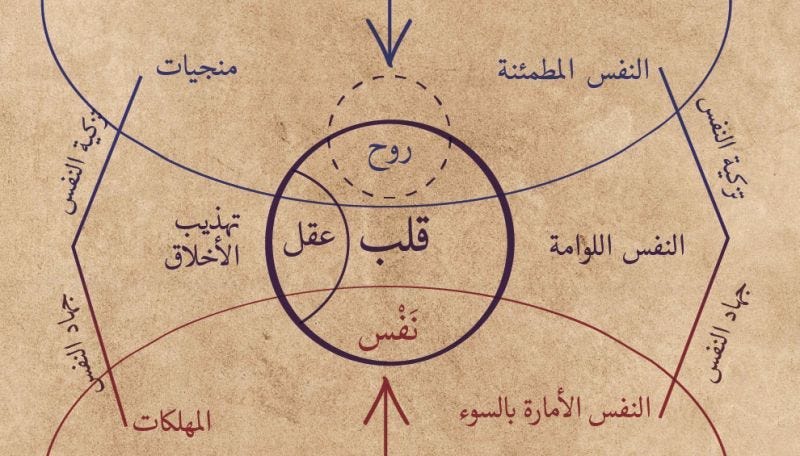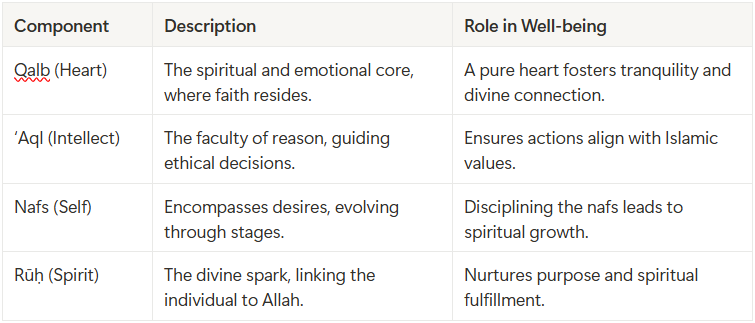Psychology Through The Eyes of A Dawoodi Bohra
Psychology rooted in the timeless wisdom of the Quran and the teachings of the Prophet Muhammad (SAW) and his Ahl ul Bayt, offers a holistic framework for achieving balance and inner peace.
Embracing Islamic Psychology: A Guide for Dawoodi Bohras
In an era marked by rapid change and modern pressures, many individuals grapple with mental and spiritual challenges that test their resilience. Islamic psychology, rooted in the timeless wisdom of the Quran and the teachings of the Prophet Muhammad (SAW) and his Ahl ul Bayt, offers a holistic framework for achieving balance and inner peace. For Dawoodi Bohras, this approach is enriched by the guidance of the Dai al-Mutlaq, His Holiness Syedna Aaliqadr Mufaddal Saifuddin, whose leadership provides clarity and direction, ensuring alignment with the Fatimid legacy. This article explores ten common challenges faced by Muslims and how our community’s adherence to the Dai’s teachings safeguards us from these struggles, offering practical self-help strategies to foster mental and spiritual well-being.
The Islamic Model of the Self
Islamic psychology presents a comprehensive view of the human self, comprising four key components: the heart (qalb), intellect (‘aql), self (nafs), and spirit (rūḥ). These elements interact dynamically, shaping our thoughts, emotions, and actions. The qalb is the spiritual and emotional core, where faith and Taqwa (God-consciousness) reside. The ‘aql guides ethical decisions, ensuring alignment with divine principles. The nafs exists in stages—al-nafs al-ammārah (commanding self), al-nafs al-lawwāmah (self-reproaching self), and al-nafs al-muṭma’innah (tranquil self)—reflecting the journey from base desires to spiritual serenity. The rūḥ, a divine spark, connects us to Allah, fostering a sense of purpose.
For Dawoodi Bohras, the Dai al-Mutlaq provides authoritative interpretations of these concepts, drawing from the teachings of Ahl ul Bayt. His guidance ensures that we understand and apply this model to achieve mental and spiritual harmony, avoiding the fragmentation that can arise from a lack of clarity.
Ten Safeguards Against Common Challenges
Many Muslims face challenges that stem from diverse interpretations of faith and modern societal pressures. The Dawoodi Bohra community, under the Dai’s leadership, is protected from these struggles, as his teachings provide a unified and pure source of wisdom rooted in the Fatimid tradition. Below, we address ten common challenges and how our community overcomes them.
Clarity in Guidance
Many Muslims face uncertainty about where to seek help due to conflicting scholarly opinions, a challenge rooted in historical divisions following the Prophet’s passing. Dawoodi Bohras, however, rely on the Dai al-Mutlaq as the sole source of guidance. His sermons, writings, and personal audiences provide clear direction, ensuring we know where to turn in times of need. For example, during Ashara Mubaraka, the Dai’s discourses offer insights into navigating life’s challenges, fostering confidence and clarity.
Purity of Knowledge
Confusion over what constitutes valid Islamic knowledge is common, with diverse fatwas and interpretations creating uncertainty. For Dawoodi Bohras, the Dai’s teachings, derived from the Ahl ul Bayt, ensure purity and authenticity. His guidance clarifies what Islam permits and prioritizes, eliminating doubt and aligning our actions with divine principles.
Integrating Faith and Knowledge
Some Muslims mistakenly view secular knowledge as incompatible with faith, rejecting valuable insights. The Dawoodi Bohra community embraces both deen (faith) and dunya (worldly life), as encouraged by the Dai. As stated on our official website, “It befits our brethren, may Allah give them strength, to not despise any field of knowledge, or shun a particular book, or bear prejudice towards a certain faith. Indeed our philosophy and our faith encompass all faiths and all knowledge” (The Dawoodi Bohras). Institutions like Aljamea-tus-Saifiyah and MSB Educational Institute exemplify this integration, offering both Islamic and modern education.
Recognizing Allah as the Source of All Knowledge
Forgetting that all knowledge originates from Allah can lead to a fragmented worldview. Dawoodi Bohras are taught to pursue knowledge in all fields, from sciences to arts, knowing that the Dai helps us align these with divine truth. This approach, rooted in the Fatimid tradition of intellectual flourishing, ensures a holistic understanding of knowledge as a divine gift.
Freedom from Fear of Betrayal
Some Muslims fear that engaging with non-traditional practices betrays their faith. Dawoodi Bohras trust in the Dai’s authorization, which allows us to explore modern knowledge and practices without guilt, as long as they align with Islamic principles. This confidence stems from the Dai’s role as the representative of Ahl ul Bayt, ensuring our actions remain faithful.
Balanced Approach to Rituals
Over-reliance on rituals like dua or Quran recitation without reflection can limit personal growth. Dawoodi Bohras are encouraged to combine rituals with action and introspection. The Dai’s teachings emphasize implementing faith through practical efforts, such as community service or personal development, ensuring a dynamic and impactful spiritual life.
Connection to Islamic Psychological Scholarship
Many Muslims are unaware of Islamic scholarship on psychology, which has addressed mental health for centuries. The Dai al-Mutlaq connects us to this tradition, exploring the interplay of qalb, ‘aql, nafs, and rūḥ. This knowledge, passed down through the Ahl ul Bayt, equips us to address mental health holistically.
Harmonizing Worldviews
Adopting secular worldviews that conflict with Islamic principles can create dissonance. Dawoodi Bohras, guided by the Dai, maintain a worldview that harmonizes faith with worldly success. Our achievements in business, education, and community initiatives, such as Project Rise, reflect this balance, driven by the Dai’s emphasis on ethical and spiritual integrity.
Integrated Understanding of the Self
A fragmented view of the self—lacking understanding of how nafs, qalb, ‘aql, and rūḥ interact—can hinder well-being. The Dai’s teachings provide a clear model, illustrating the nafs’s stages (al-ammārah, al-lawwāmah, al-muṭma’innah) and the roles of qalb, ‘aql, and rūḥ. This holistic understanding fosters balance and spiritual growth.
Openness to Seeking Help
Shame or fear of weak faith can lead some Muslims to suffer in silence. Dawoodi Bohras are encouraged to seek knowledge and support within the community, knowing that addressing struggles strengthens faith. The Dai’s guidance fosters an environment where seeking help is a sign of commitment to personal and spiritual growth.
Practical Steps for Mental and Spiritual Well-being
To apply Islamic psychology in daily life, Dawoodi Bohras can adopt these practical strategies, inspired by the Dai’s teachings and the legacy of Ahl ul Bayt:
Attend Majalis Regularly: Participate in religious gatherings to gain spiritual insights and community support. The Dai’s discourses during events like Ashara Mubaraka provide actionable guidance for navigating challenges.
Engage in Dhikr: Practice remembrance of Allah through supplications like “La ilaha illallah” to center the heart and reduce stress. Dedicate 10 minutes daily to silent dhikr for inner peace.
Pursue Education: Enroll in community institutions like Aljamea-tus-Saifiyah or pursue secular education, aligning all learning with the Dai’s teachings to integrate deen and dunya.
Participate in Community Service: Volunteer in initiatives like Project Rise to foster purpose and connection, reflecting the Islamic ethos of serving creation (The Dawoodi Bohras - Project Rise).
Consult Community Leaders: Seek advice from trusted leaders or counselors for guidance that aligns with Islamic principles and modern needs.
Adopt a Balanced Lifestyle: Follow the Dai’s advice on moderation in diet, exercise, and digital consumption to support physical and mental health. He emphasizes structured routines and interpersonal interaction to combat emotional fatigue (Mufaddal Saifuddin - Wikipedia).
Cultivate Mental Resilience: Engage in activities like walking or community recreation, as promoted by the Dai, to build mental strength and maintain well-being.
The Dai’s Teachings on Mental Health
Syedna Mufaddal Saifuddin emphasizes holistic well-being, addressing physical, mental, and social aspects. He advocates for moderation in lifestyle, cautioning against excessive digital consumption, which can lead to emotional fatigue and disconnection. His sermons highlight hygiene, structured routines, and community interaction as protective factors for psychological health, ensuring that our approach to mental well-being is both practical and spiritually grounded.
Conclusion
The Dawoodi Bohra community, guided by the Dai al-Mutlaq, is uniquely positioned to navigate modern challenges with clarity and confidence. By adhering to the teachings of Ahl ul Bayt, as interpreted by the Dai, we avoid common pitfalls like uncertainty, confusion, and disconnection. Through practical strategies and a holistic understanding of the self, we can achieve mental and spiritual fulfillment, living lives that reflect the balance and wisdom of our faith.
Citations:




